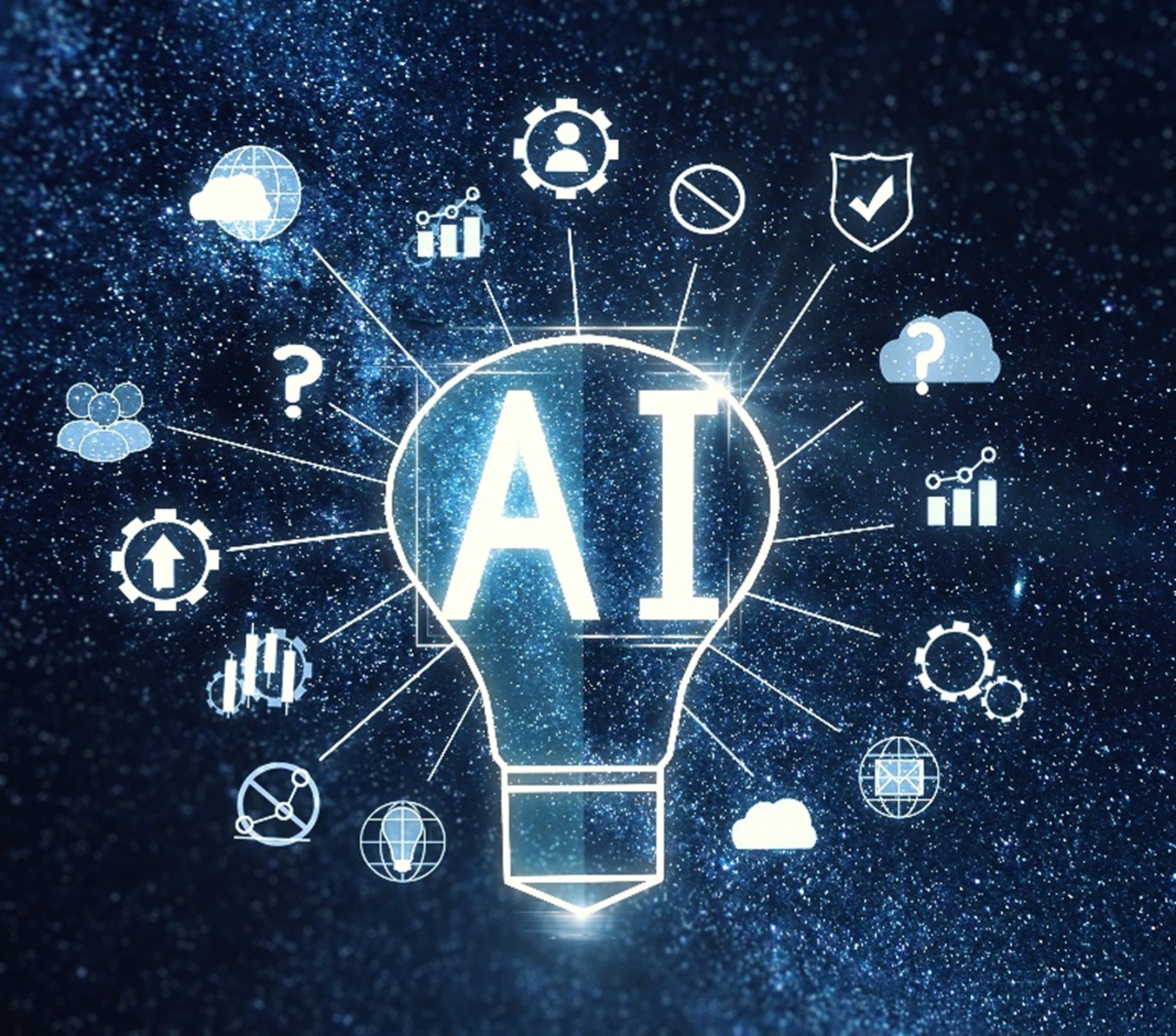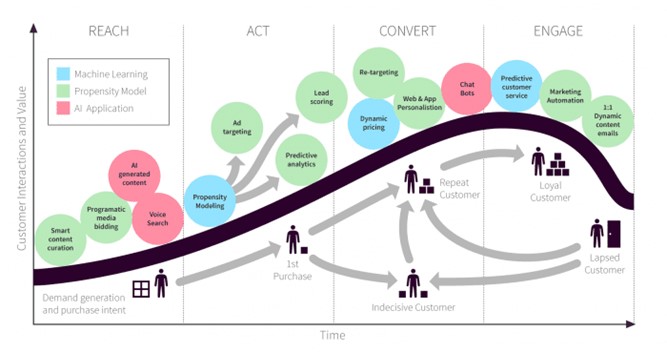
The use of Artificial Intelligence (AI) in marketing and sales has been around for many years now. It is probably best associated with Amazon, which attributes 35% of its revenues to the AI recommendation agent it developed 8 years ago.
Machine learning, related to AI, is an algorithm that automatically learns from data and applies the learning without the need for any human interaction.
Common examples here include serving up product suggestions based on a visitor’s browsing history, and the predictive text options mobile SMS give us.
Using AI in marketing
When it comes to marketing and the customer journey, traditional analytics focus on using data to generate insights and find ways to improve the marketing’s effectiveness. This data is driven by humans rather than machines.
AI can save time and produce more effective results by leveraging customer data to predict and anticipate the customer’s next move. This can then be used to create and serve further relevant marketing to encourage them to move along the customer journey. This is illustrated in this great diagram from Smart Insights
Here are some other examples in which AI and machine learning are being used to improve marketing and sales:
1 Better performing PPC campaigns
AI can be used to test and optimise ads within the PPC ad platforms. Marketers are using machine-learning algorithms to improve the layout, copywriting, targeting, and bidding approaches in their campaigns.
2 An enhanced website experience
By factoring in location, demographics, preferred device and interaction aspects of a website’s visitors, AI can be used so the site displays more relevant offers and content, and pushes more personalised messages to the visitor.
3 Content generation
AI tools can automatically generate email content or social media posts. This is achieved by looking at previous website interactions, previously read blog articles, dwell time and previous interactions with emails. eBay has been doing this since 2016 and seen a 16% open rate uplift and 31% click rate uplift.
4 Chatbots
Chatbots have been adopted by many companies. They ease the pressure on busy customer service teams by automatically answering common customer questions. This means a physical agent only needs to focus on those queries and enquiries which are more specialised or unusual.
5 Churn prediction and modelling
Drawing on the right data machine learning algorithms can be used build customer behaviour models. These can then be used to predict various outcomes to different campaigns or marketing tactics. This provides a stronger range of options for marketers to test on real customers. It also flags which approaches are likely to be less effective, so potentially wasted investment in them can be avoided.
6 Customer Insights
Customer personas can be created from applying AI and machine learning to analyse purchase behaviours, on site interactions, past communications, and geo-specific events. Drawing on this data, businesses can then segment customers into personas or profiles. This can help in research & development activities to improve the product or service range for customers. It can also guide marketing and sales functions to create more tailored and relevant messaging and campaigns to generate better customer engagement.
7 Automated image recognition
This is used to recognise people from images and videos to then identify customers who enter a store and link to data around their online behaviour. This may have privacy rights implications so it’s important to ensure you’re complying with the privacy legislation in your territory when using AI for this purpose.
Summary
While AI has been around for a while, its adoption by companies is building slowly. Gartner recently estimated just 37% of companies are fully using it despite many having invested in the technology. Like many innovations, it takes time for businesses to recognise the full breadth of AI and machine learning’s capabilities and apply those to different parts of an organisation’s operations.
As more businesses experiment, more positive applications and examples will emerge. If Amazon and eBay are anything to go by, mastering AI and machine learning successfully certainly gives businesses a competitive edge.
How we are helping
At Fusion Analytics our data consultants are helping businesses organise their data to make the most of AI and machine learning. We help them gather, clean and get their data in the best form for AI and machine learning to be most effective. Sometimes data is spread across different facets of the business in different forms and systems. We help businesses to harmonise and consolidate it so AI and machine learning is more effective.
Our WebFusion marketing and sales tracking software can also draw data from across both online and offline marketing activity to feed into AI and machine learning-driven modelling, customer profiling and the improvement of key points in the customer journey.
If your business is interested in making more of AI and machine learning in its marketing, please do get in touch for an initial chat.


